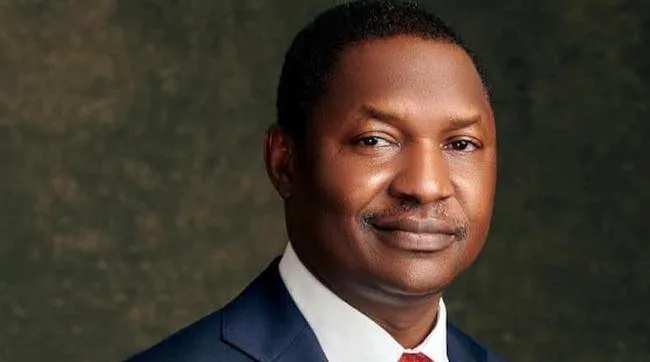Former Attorney General of the Federation and Minister of Justice, Abubakar Malami, SAN, has clarified that decisions on presidential pardons are handled by a designated committee, emphasising that his role was limited to presenting the committee’s report.
Malami made this statement in response to allegations made in former President Olusegun Obasanjo’s newly released book, Nigeria: Past and Future, which accused him of playing a key role in enabling corruption during the administration of former President Muhammadu Buhari.
The book, released in celebration of Obasanjo’s 88th birthday, claimed that corruption was at its peak under Buhari’s leadership. Obasanjo alleged that “the most atrocious waste, enthronement of corruption, and discouragement of officials fighting corruption” occurred during Buhari’s tenure and described Malami as a “devil’s workshop.”
During Buhari’s administration, two former governors, Joshua Dariye of Plateau State and Jolly Nyame of Taraba State, were granted presidential pardons after being convicted of fraud. Dariye had been serving a 10-year sentence for embezzling ₦1.126 billion in state funds, while Nyame was sentenced to 12 years for misappropriating ₦1.64 billion.
The Council of State, chaired by Buhari in April 2022, approved their pardons on grounds of age and ill health, leading to their release from Kuje Correctional Facility in the Federal Capital Territory in August 2022.
Obasanjo alleged that Malami strongly advised Buhari to approve these pardons and claimed the process was tainted by corruption. He further stated that subsequent findings revealed that neither Dariye nor Nyame had life-threatening illnesses as initially suggested.
“It was all part of Malami’s financial shenanigans, and he played many such schemes to his advantage. His principal concurred, condoned, turned a blind eye and a deaf ear, and paid lip service to fighting corruption while cohabiting comfortably with corruption in multifarious ways,” Obasanjo asserted.
In response, Malami rejected the claims, asserting that the process of granting pardons follows a strict legal framework.
“Generally speaking, the issue of pardon is a legal matter governed by law and existing legislation, in which a committee on the prerogative of mercy—not the Attorney General—is responsible,” Malami stated.
He further clarified that his role was only to present the committee’s report to the Council of State.
“The responsibility for actions and inactions associated with the committee’s recommendations lies with the committee, not the Attorney General,” he said.
Malami also criticized the rising trend of making baseless corruption allegations against public officials, both within and outside the country. He called for fact-based accusations supported by credible evidence.
“Our system and polity are characterised by wild and unsubstantiated allegations of corruption relating to official acts of governance, both locally and internationally. We have witnessed unguarded allegations even against our well-respected presidents during international media engagements. The Hard Talk interview of President Obasanjo is a relevant case in point,” he noted.
The former minister emphasized the need for details in any corruption or bribery allegations.
“It is only reasonable to provide adequate particulars where allegations of corruption are made. Who gives what? How much was given? Who facilitated the bribery? Through what medium was the bribe given? On what date and time? These details are always necessary to establish reasonable suspicion,” Malami stated.
He concluded that without such specifics, corruption allegations remain baseless, mischievous, and lack legal grounds for action.

